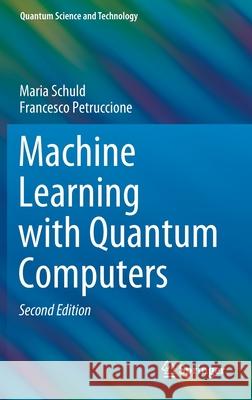Machine Learning with Quantum Computers » książka
topmenu
Machine Learning with Quantum Computers
ISBN-13: 9783030830977 / Angielski / Twarda / 2021 / 324 str.
Machine Learning with Quantum Computers
ISBN-13: 9783030830977 / Angielski / Twarda / 2021 / 324 str.
cena 522,07
(netto: 497,21 VAT: 5%)
Najniższa cena z 30 dni: 501,19
(netto: 497,21 VAT: 5%)
Najniższa cena z 30 dni: 501,19
Termin realizacji zamówienia:
ok. 22 dni roboczych.
ok. 22 dni roboczych.
Darmowa dostawa!
Kategorie:
Kategorie BISAC:
Wydawca:
Springer
Seria wydawnicza:
Język:
Angielski
ISBN-13:
9783030830977
Rok wydania:
2021
Wydanie:
2021
Numer serii:
000461144
Ilość stron:
324
Waga:
0.63 kg
Wymiary:
23.39 x 15.6 x 1.91
Oprawa:
Twarda
Wolumenów:
01
Dodatkowe informacje:
Wydanie ilustrowane











